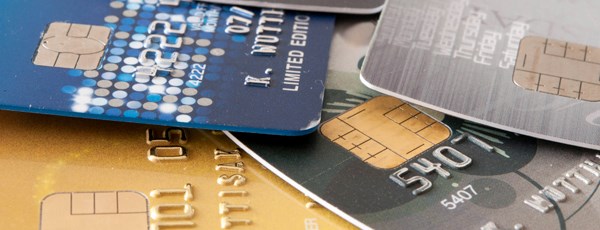 As you may have heard in the news or experienced firsthand, there is currently a chip shortage that is significantly extending the time it takes for members to receive a new credit or debit card. What used to take days now can take weeks or months.
As you may have heard in the news or experienced firsthand, there is currently a chip shortage that is significantly extending the time it takes for members to receive a new credit or debit card. What used to take days now can take weeks or months.
Fortunately, there are ways to overcome this challenge by planning ahead or implementing new payment tools proactively.
“This shortage has the potential to impact members, but credit unions can ensure no interruption in member service by revisiting their plastic ordering threshold to ensure there is enough time to produce new plastics before their existing supply runs out,” explained Corinne Sherman, Vice President of Payment Sales and Consulting for Synergent. “Taking inventory of your plastics stock and placing orders to restock earlier than usual is one way to address the shortage. It also is a good time to consider card alternatives.”
What Is Happening?
The global chip shortage began and persisted throughout the COVID-19 pandemic. While it was widely broadcast as a shortage in the automotive industry, the same chip technology is used in cards. What started then was aggravated by increased demand coupled with the war in the Ukraine due to the impact to neon supplies, which are an essential component in making the chips. The shortage also was impacted by a lack of factories adept at manufacturing the chips. While the CHIPS and Science Act was passed by the Biden administration in 2022 to provide incentives for more chip factories to be built, it will take quite some time before this infrastructure is in place and positive change is felt.
For smaller credit unions, the impact is even more pronounced.
“Credit cards are further down the list, and furthermore smaller credit card issuers are even further down the list,” said Ted Rossman, a senior industry analyst with Bankrate. “So that’s where we’re hearing about the longest delays, credit unions and community banks.”
From July 2021 to June 2022, chip cards were used in 85% of transactions in the United States and in 92% of transactions globally. However, also during the pandemic, consumer attitudes greatly shifted in terms of adopting new payment tools, such as mobile wallets (Google Pay, Apple Pay) and contactless cards. These options remain available and are alternatives to using traditional chip cards.
What You Can Do
Synergent strongly encourages credit unions to take the following proactive steps to avoid any impact to member service:
- Maintain Sufficient Plastic Stock: Plan ahead to ensure you have enough plastic stock on hand, so chip shortages do not impact individual member plastic orders. On the member side, they’re accustomed to receiving cards in 10 days tops. But if you don’t have the plastics on hand, there could be a ripple effect. For credit unions using custom plastics, please keep a close eye on inventory and future projected usage. Keep in mind that replacement plastic orders that once took 6-8 weeks are now expected to take at least 4-6 months.
- Eliminate Need to Maintain Plastic Stock: This is the time to consider moving to Print On Demand or the Card Collection Plastic Series. Both services eliminate the need for credit unions to maintain and monitor their own plastic stock and are available as contactless programs.
- Go Contactless: Now is the time to consider moving to contactless plastics.
Synergent Is Here To Help
We will continue to monitor the chip shortage and will provide updates as they are available. If you have any questions, or if you would like to see if the recommended solutions are a fit for your credit union, please contact your dedicated Account Relationship Manager or email ARM@synergentcorp.com.
